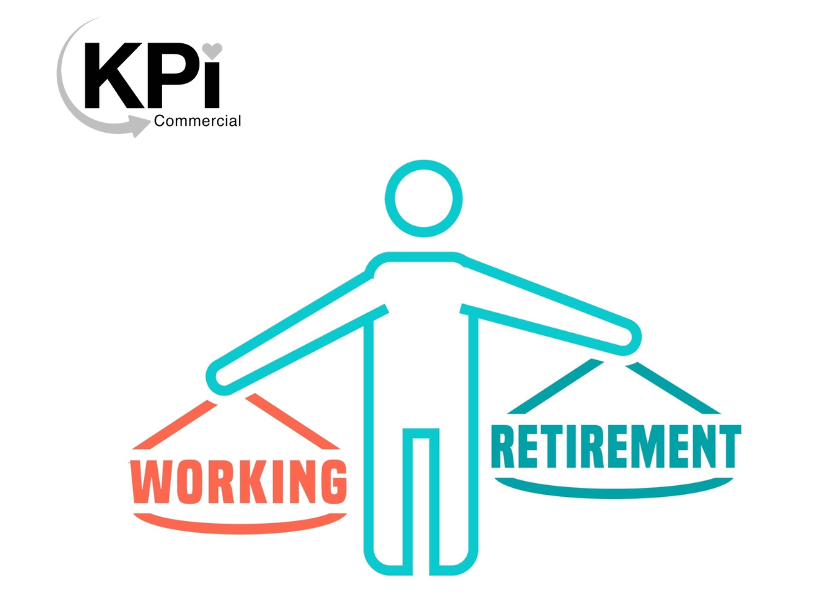Over 50’s focus: “Age should be a positive rather than a negative for employers” says KPI Director Lily James

As a developed nation, the UK continues to experience an aging workforce, something which has been seen very much as a negative in past years. The persisting imbalance between job vacancies and applicants stems partly from the faster retirement of baby boomer, despite the uplift in retirement age. This has been accelerated by COVID, with nearly 2% more over 55’s retiring before 67 in 2022 than before the pandemic. and is has recently outpaced the influx of millennials to replace them.
KPI Recruiting Director Lily James believes businesses may be missing a competitive advantage by not engaging with the over 50s, 60s and even 70s. “We believe that in 2024 clients will need to take advantage of more experienced employees and encourage older applicants. By bridging this widening gap in the job market, companies must address the challenge of age bias and actively engage in retaining and rehiring older professionals.”
Lily believes there are seven compelling reasons to support the appointment and retention of older employees within your organisation.
- Skills & Experience
“Older employees contribute a wealth of experience, critical thinking, and knowledge attained over time,” said Lily. “Certain industries require a decade or more to acquire the technical skills for top-tier performance. Leveraging both professional and personal experiences, older workers excel in their roles, offering valuable insights. Wisdom, an often-overlooked asset, distinguishes between astute decisions that propel the company forward and mistakes that set it back.”
- Higher Retention Rate
“The presence of individuals aged over fifty promotes greater company loyalty, leading to a reduced turnover rate, which in turn means corporate knowledge is retained and recruitment and training resources are minimised,” said Lily. “Seasoned professionals, having established their careers, exhibit a strong commitment to their current positions, fostering stability within the organisation and lowering attrition, which affects not only the workload of those who remain, but also their perception of the business.”
- Strong Work Ethic
As well as skills, Lily was also keen to emphasise the positive characteristics of mature employees. “Older employees invariably exhibit a strong work ethic, punctuality, and resilience in fast-paced industries. Their reliability, combined with adaptability to new skills and technologies, positions them as assets to any company. Having weathered various challenges throughout their careers (as well as recessions, credit crunches, and other economic crises) they bring a level of perseverance that proves invaluable during business challenges.”
- Bigger Network
“Connections and experience go a long way in today’s business world,” said Lily. “Long-time employees possess an intricate understanding of the company, making them essential in guiding new colleagues. Their extensive networks, developed over decades, contribute to the organisation's stability and continuity. These individuals, having moved within the company, comprehend all facets of the business, making them invaluable assets.”
- Multi-generational Teams
Lily believes that different generations bring distinct methodologies. “Embracing the diverse perspectives of four generations working together enhances company dynamics. This diversity not only promotes inclusivity and diversity but also strengthens problem-solving capability and augments a company's employer brand. The unique assets each generation brings contributes to a synergy that brings a more dynamic work environment.”
- In-house Mentorship
Lily also cited the ability of mature employees to empower younger colleagues. “An intergenerational mix facilitates the transfer of expertise, creating a diverse and high-performing company structure. Older employees, with a comprehensive understanding of roles and responsibilities, contribute to the overall success of the company. Their ability to manage unexpected situations, coupled with leading internal training sessions, nurtures knowledge-sharing.”
- Cost-Effectiveness
Ultimately, cost also figures in the equation. “While experienced older employees may initially incur higher costs, their long-term commitment and stability prove cost-effective,” said Lily. “Unlike the younger generation being prone to frequent job changes, older employees offer longevity, saving companies from the constant expenses of hiring and training. In the long run, older employees enhance productivity, industry reputation, and financial stability.”
“To ensure we make recruitment and retention as easy as possible going forward, businesses must dispel the myths and stereotypes surrounding older employees,” summarised Lily. “The over 50s remain an untapped source of potential. Embracing their skills, experience, and wisdom leads to a win-win scenario, enhancing the success and reputation of a company. The collaboration of different generations within the workforce results in a dynamic, cost-effective, and thriving business model, tapping into the underused talent pool of older professionals in our maturing workforce.”
If you need guidance or advice on how best to recruit the best-fit people for your vacancies, call Lily James on 01925 637871, email LilyJ@kpir.co.uk or contact her on LinkedIn.

